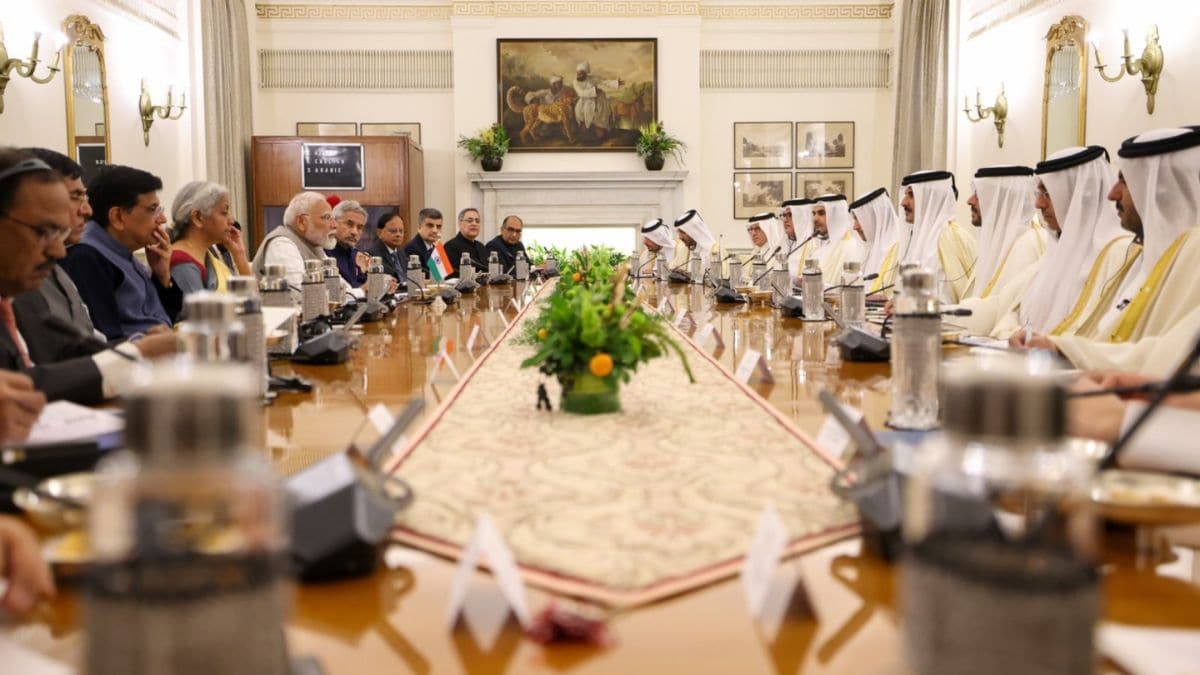
When Prime Minister Narendra Modi personally welcomed Emir of Qatar, Sheikh Tamim bin Hamad Al-Thani, at the airport, it signalled personal diplomacy looking to boost relations. For decades, Qatar’s vast hydrocarbon reserves have underpinned its appeal to energy-starved India. Modi’s earlier manoeuvres secured LNG and LPG imports at advantageous rates—a lifeline that has shielded India from the vicissitudes of global energy markets.
Yet, beyond the petrochemical comfort zone lies a largely untapped reservoir of potential. In 24 years, Qatar has invested a paltry $3 billion in India—a figure that starkly contrasts with the broader Gulf appetite for deeper economic engagement. With an investment guarantee treaty under discussion, there is every prospect of dramatically amplifying this figure.

Trade between the two nations, currently at only $14 billion, has too narrowly revolved around fossil fuels and chemicals. While Qatar’s key exports to India include LNG, LPG, petrochemicals, and fertilisers, India’s offerings—valued at a modest $1.7 billion compared to its $12.
38 billion in imports—present a ripe opportunity for diversification. Beyond petrochemicals, India is eyeing sectors that play to its longstanding strengths. Agricultural exports, including high-quality poultry, along with traditional staples such as cereals and spices, stand poised to capture a larger share of Qatar’s import basket.
For that, however, India needs consistency in its agricultural export policy, for you cannot suddenly ban exports and hope for a market. Moreover, engineering exports have begun to make their mark, as evidenced by L&T’s part in a landmark $1.3 billion contract for the offshore Al Shaheen field.
India’s engineering prowess can underpin new avenues of collaboration. Strategically, the relationship has matured well beyond commerce. The Indian military’s regular joint exercises and long-term mutual visits, including prospective Air Force deployments, signal a robust defence cooperation.
Geopolitically, Qatar holds a unique position, particularly given its mediating role in Afghanistan—a matter of significant strategic interest for New Delhi. The warmth of Modi’s personal reception must now be translated into forward-looking economic and strategic initiatives. The untapped potential in diversified trade and investment beckons both nations to move beyond transactional engagements.
In an era defined by rapid geopolitical shifts and burgeoning economic ambitions, India and Qatar stand like two friends at the cusp of a new venture—poised to grow together if they dare to expand their horizons. It will test political will on both sides.The dhow looks set to sail.
The writer is a senior journalist with expertise in defence. Views expressed in the above piece are personal and solely those of the author. They do not necessarily reflect Firstpost’s views.
.















